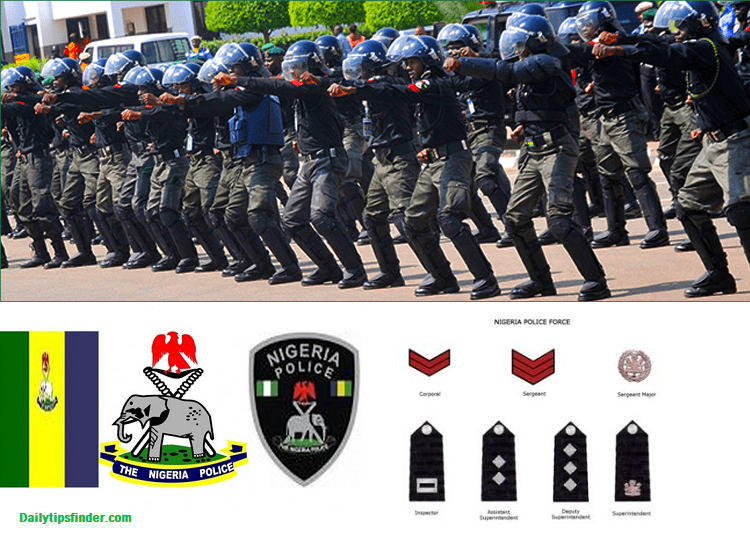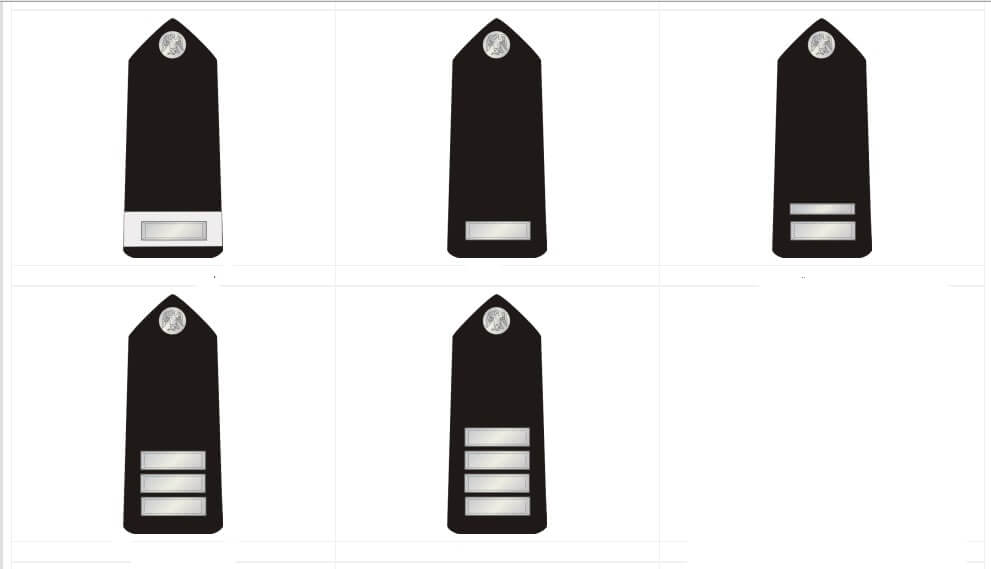Nigeria Police Ranks: A Comprehensive Guide
What does it take to climb the ranks of the Nigerian Police Force? Dedication, skill, and a deep understanding of the hierarchical structure are essential for navigating this complex and vital institution. The NPF, a cornerstone of Nigerian security, operates on a clearly defined system of ranks, each with its own responsibilities, authority, and corresponding compensation. From the foundational role of the Constable to the pinnacle of power embodied by the Inspector General, the journey through the ranks is a testament to commitment and service.
The Nigerian Police Force (NPF) is not merely a collection of individuals; it is a meticulously structured organization, a pyramid of authority designed for effectiveness and accountability. Each rank represents a specific level within this hierarchy, reflecting increasing levels of responsibility and decision-making power. Understanding this structure is key to comprehending the dynamics and operations of the NPF, a force tasked with upholding law and order across Nigeria's diverse landscape, encompassing all 36 states and the Federal Capital Territory (FCT). The NPF's reach extends to every corner of the nation, enforcing the law as mandated by the 1999 Constitution. Its officers are the front line of defense against crime, safeguarding public safety and ensuring the rule of law prevails.
| Rank Structure Information | Nigeria Police Force Website |
| Inspector General of Police | Highest Rank |
| Deputy Inspector General of Police | Second Highest Rank |
| Assistant Inspector General of Police | |
| Commissioner of Police | |
| Deputy Commissioner of Police | |
| Assistant Commissioner of Police | |
| Chief Superintendent of Police | |
| Superintendent of Police | |
| Deputy Superintendent of Police | |
| Assistant Superintendent of Police | |
| Inspector of Police | |
| Sergeant | |
| Corporal | |
| Constable | Lowest Rank |
| Recruit Constable | Trainee |
The journey within the NPF often begins at the entry level, where recruits undergo rigorous training, absorbing the fundamentals of policing, from basic procedures to the complexities of law enforcement. These individuals, designated as Recruit Constables, form the foundation of the force. Many aspire to climb the ladder, driven by the promise of increased pay, greater authority, and the opportunity to shoulder more significant responsibilities. The path upward leads through ranks like Corporal, Sergeant, and Inspector, each step demanding further training and experience. Its a career path built on dedicated service, where years of commitment can culminate in significant leadership roles.
The NPFs hierarchical structure isn't simply about titles and insignia; it's a carefully designed system to ensure efficient command and control. This framework facilitates clear communication, delineates authority, and enables the force to respond effectively to a wide array of security challenges. The system also ensures accountability at every level. Promotions aren't merely automatic; they are earned through demonstrated competence, leadership potential, and a steadfast commitment to upholding the principles of the NPF. This rigorous process ensures that those who ascend the ranks are well-equipped to handle the increased responsibilities and complexities that come with higher positions.
Beyond the basic structure, the NPF is further organized into various departments and units, each specializing in a particular area of law enforcement. This specialization allows the force to address specific types of crime and security concerns with targeted expertise. From criminal investigation and traffic control to counter-terrorism and community policing, the diverse units within the NPF reflect the multifaceted nature of its mandate. This intricate network of specialized units works in concert, contributing to a comprehensive and robust security apparatus.
The compensation structure within the NPF is directly tied to rank, acknowledging the increasing responsibilities and expertise associated with each level. This system of tiered salaries recognizes the importance of rewarding dedication and experience, providing an incentive for career progression within the force. It also acknowledges the financial commitment required of officers who dedicate their lives to serving and protecting the Nigerian people.
The symbols associated with each rank, from the single star of a Deputy Superintendent of Police to the complex coat of arms adorning the uniform of the Inspector General, are more than just decorations. They are visual representations of authority, instantly communicating an officer's position within the hierarchy. These symbols, often displayed on shoulder boards or sleeves, are integral to the NPF's visual identity, reinforcing the structure and order that underpin its operations.
The evolution of the NPFs structure reflects Nigerias own journey as a nation. From its origins in the colonial era, with regional forces eventually merging into a unified national body in 1930, the NPF has adapted and grown to meet the evolving security needs of a complex and dynamic nation. This historical context underscores the NPFs deep roots within Nigerian society and its continuous evolution as a vital institution.
The Nigerian Police Force, a crucial component of Nigerias security infrastructure, is a complex and hierarchical organization. Understanding its ranks, structure, and operational principles is essential for anyone seeking a career within its ranks, or for those who simply wish to understand the inner workings of this vital institution. The NPFs dedication to upholding law and order, ensuring public safety, and serving the Nigerian people is reflected in its rigorous training programs, its clearly defined hierarchy, and its unwavering commitment to professionalism. It is a force constantly evolving to meet the challenges of a dynamic nation, its officers embodying the spirit of service and dedication that is at the heart of the Nigerian Police Force.
The Nigerian Police Academy, a vital institution for training future officers, mirrors the structure and rigor of the Nigerian Defense Academy. This parallel underscores the NPFs commitment to providing high-quality education and training for its personnel. The academy prepares cadets not only with the academic knowledge required for a career in law enforcement but also with the practical skills and ethical grounding necessary for serving the nation with integrity and professionalism.
Ultimately, the Nigerian Police Force is far more than just a collection of ranks and salaries. It is a living, breathing institution, comprised of individuals dedicated to upholding the law and safeguarding the nation. Its complex structure, its rich history, and its unwavering commitment to service make it a vital component of Nigerias security landscape.


